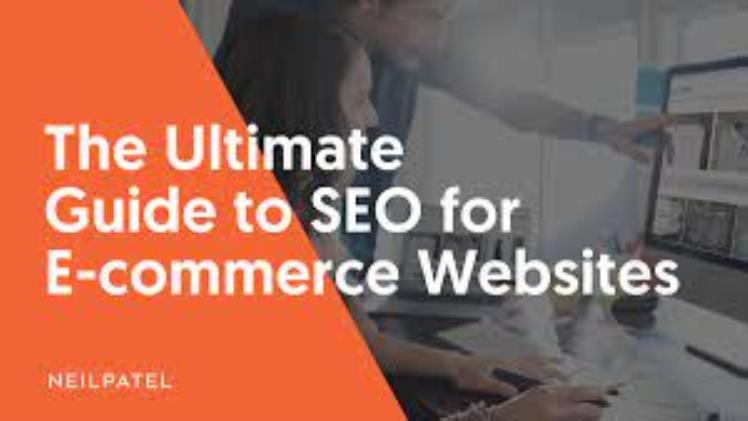Optimizing Your eCommerce Store: A Comprehensive SEO Troubleshooting Guide

Navigating through the competitive world of eCommerce can be challenging, especially when it comes to standing out and achieving top search engine rankings. Many online stores need help to optimize their visibility on the web, often needing assistance due to ineffective SEO strategies that play a critical role in online visibility and presence. Getting help from professional eCommerce SEO services that can significantly boost your store’s chance to shine in the crowded online marketplace is essential.
The services should focus on fine-tuning elements such as keywords, meta descriptions, image alt texts, and building quality backlinks, all tailored explicitly for eCommerce sites. These factors assist in pinpointing and resolving potential issues and refining site structures, applying sophisticated strategies designed to enhance visibility in search engine results. It can attract more organic traffic and encourage higher conversion rates and sales, paving the way for your eCommerce success!
Search Engine Optimization and Google Ranking
To rank better you must adhere to the best SEO practices. If your website is not SEO-friendly, you will not rank better. Your website receives visitors from various sources, including Facebook, Instagram, email marketing, search engines, and more. It is a tremendous undertaking to make your eCommerce site SEO-ready. But you can simplify the entire process by prioritizing the product pages you want users to concentrate on and start with those pages’ optimization. Keywords are always important. Use keywords in your product’s title, summary, meta description, alternate attributes for images, and subheadings.
Include LSI keywords often throughout the description. These are pertinent keywords that aid search engines in contextualizing your page. Additionally, confirm that your platform is SEO-friendly so that your products and their descriptions may be found online when a user searches for them.
Now let us discuss the factors that need special attention regarding SEO.
i) Frequently Used Title Tags
Using several redundant title tags is one of the most prevalent problems. This is a problem that Google penalizes heavily, but that is simple to correct. Ensure that the title tag for each page of your website is distinct.
ii) Many 404 Errors
Nobody would want to go to a webpage with links if all (or even some) links were no longer valid. So why would Google include a web page with many problematic links in its search results?
You can crawl your website or see if the Google search results list any error pages. You can check for mistakes more quickly by typing site:website.com into Google, which will list all your pages for review.
iii) Site Update
While much of this relies on your niche, updating your website is essential for staying competitive. Examining your competitors will show you what you need to do to compete with other websites in your niche. You won’t likely gain from growth if your website is static and shows no signs of expansion (in terms of content, links, or any other online marketing initiatives).
iv) Robots.txt File Causing Indexing Issues
One of the most frequent technical issues is when the customer incorrectly configures robots.txt, preventing any pages or folders from crawling. If you need to be more diligent and need help understanding how to use it, this file could make or ruin your crawling and indexing. This will result in search engines stopping crawling and indexing your complete site, decreasing visitors.
v) Keyword Optimization
Giving customers an excellent customer journey and experience is a big part of SERP ranking. Nowadays, search engines detest keyword stuffing. Therefore, if your site is found guilty, you may be subject to sanctions on the concerned pages or the entire site. In rare circumstances, Google can remove your website from the SERPs (search engine results pages). Users will leave a site if they encounter content more concerned with improving rankings than informing and engaging them. So it is important to carry out keyword optimization in the appropriate way.
vi) Thin or Duplicate Content
Google will not rank thin on-page content that offers little to no value for the visitor. By automatically generated content, useless affiliate content, content that has been plagiarised from other websites, or content found on doorway pages, we mean all of the above. It is crucial to provide authentic, original, and plagiarism-free content to rank better by Google.
vii) Speed
Google’s search results are claimed to provide pages that achieve a certain threshold for speed and a ranking boost. If the website is slow loading then it can adversely affect SERP. Especially now that Core Web Vitals evaluates loading, interaction, and visual stability, speed is assessed by how long it takes for a page to load once a user clicks on the link on a search engine results page (SERP). Speed is allegedly a ranking element, and Google provides a tool for analyzing loading times called PageSpeed Insights. Speed is one of the factors that sites should never compromise on.
viii) Mobile Optimization
According to Statista, m-commerce is anticipated to generate 53.9% of all retail eCommerce in 2021. Google officially acknowledges mobile-friendliness as a ranking criterion. A successful user experience is fundamentally dependent on responsive mobile design. It is a built-in feature of Google’s page experience algorithm upgrade, released in 2020. You lose a majority of site visitors if your site is not mobile-friendly.
Adopting a mobile-first strategy that makes your site responsive and mobile-friendly is one way to deal with this problem. Utilizing the Progressive Web App (PWA) platform is another option, as these apps are equally user-friendly for mobile consumers as native apps. If you want to improve mobile, PWAs are the way to go.
Conclusion
SERP ranking plays a crucial role in online business success. By focusing and making necessary modifications to SEO, eCommerce store owners can significantly improve their chances of ranking higher on search engines. Besides optimizing SEO, regularly monitoring a site’s performance is crucial for online success. These efforts improve site visibility and search engine rankings, improving conversion. When a website is SEO (Search Engine Optimization) optimized, it enhances the customer experience and ensures the site is helpful for visitors. When the site is user-friendly and provides helpful content Google prefers to rank those sites besides creating a pool of trusted customers.


